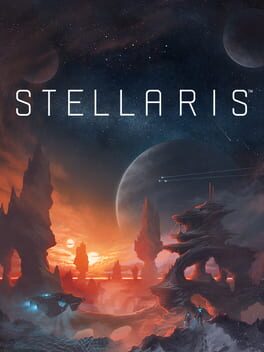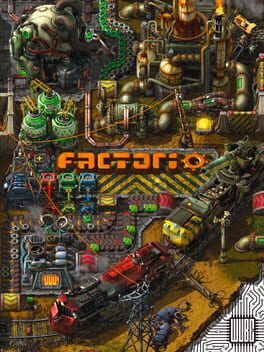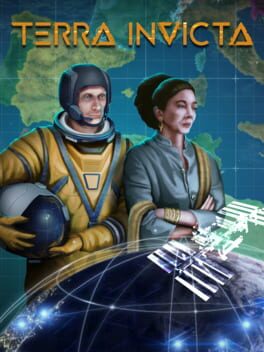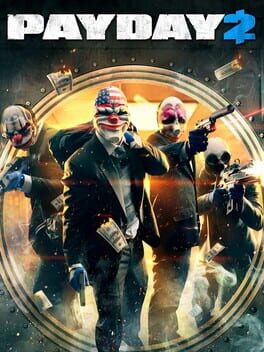BigJobosnoFan
Bio
Good Game Player- Big Fan of Jobosno
Good Game Player- Big Fan of Jobosno
Badges

Liked
Gained 10+ total review likes

2 Years of Service
Being part of the Backloggd community for 2 years

Noticed
Gained 3+ followers
Favorite Games
003
Total Games Played
000
Played in 2024
000
Games Backloggd
Recently Reviewed See More
To begin, I think it’s important to recognize that this game is one that most people will either be agnostic on, or actively dislike. This is not due to game design, gameplay or anything about the game itself. Instead, most are likely to be turned off by the basic goal of the game: to create a realistic simulation of an arrival event, and plot the near future development of humanity after such an event.
Before I get into why that might be a problem, let me explain the game itself. Rather than acting as an individual leader or country, you control a “movement” that operates as the forces behind the throne in countries around the world. These movements are divided along their responses to the alien arrival- they range from the extermination of all xenos and their followers, to those who worship the aliens as gods. Factions use “control points” to simulate their influence over individual countries, and capturing those control points gives a faction everything from money and influence, to armies and nukes. They also give “boost”, which lets a faction launch things into space, and “mission control” which lets factions control more space assets.
The game can be broken down into three distinct phases. Phase one is the “Earth” phase. Most of your focus will be the battle for hearts and minds on Earth, and the competition over scarce resources to start building stations and outposts close to home (the moon, for instance). Your space ships, if you even have any, would be vaporized by the aliens if they chose to attack you. This is the time where you’re trying to understand why you’ve been visited by these aliens, and what they want from humanity.
Phase two is “Expansion”. This is more akin to your classic 4x gameplay. Gathering resources, expanding bases to gather more resources, etc. Without spoiling anything, you’ve probably now discovered why the aliens have arrived on Earth, and your faction is now likely heavily diverging from others in their response and objectives. Earth still acts as the central spoke around which you operate, but space assets can now function with minimal intervention, and building out a self-sustaining space infrastructure is the name of the game. You likely have a fleet capable of defending your assets against other factions, and might even catch an alien or two by surprise.
The final phase is the “Space Supremacy” phase. Similar again to the final phases of a 4x game, but you’re answerable to the laws of physics. That means planning: optimizing refueling and construction depots to be able to rapidly respond anywhere in the solar system. Battling for control over massive resource nodes found in the moons and atmospheres of the outer planets. Unlocking technologies and reverse engineering alien tech so that you can produce an armada that could truly defend Earth (or pursue your own agenda, depending on your faction…).
But remember when I said people might be turned off by the basic goal of the game? The key here is “realistic simulation”. This game is very, very long. A full campaign can run you 100+ hours at the least. Your councilors ask for new missions every two weeks in a game that takes place over decades. In those two weeks you’re planning out new space engagements, keeping an eye on alien and faction movements, and tracking progress on a dozen different science projects, construction sites and control points. To be fair, the game design is good enough that once you get good at this process it goes quick, but it’s still a very long game.
And that’s where I think things start to get difficult for those who aren’t already very interested in the concept of this game. Because the most interesting part of this game isn’t necessarily the game itself, but the holes it purposefully creates for you to fill with your own imagination. It serves as the platform off which you can spend hours and hours thinking about what would it really be like for people of this country or that country to have their mass media taken over by x y or z faction. What would it really mean for the world for you to start mining on the moon? How would it feel to learn that the aliens are here to (redacted) and that they can (redacted)? How incredibly quickly would society be forced to reorganize when we’re no longer the center of the universe?
This game is fantastic at creating the set up for you to take these questions and run with it. It’s a smooth enough experience to let you transition back and forth from imaginary to video game without too much interference from poor design or gameplay. Of course, being the large game it is, some parts of it feel a bit more stretched than others (for instance: space combat is based on Newtonian physics, which means it’s an absolute disaster to try and manually play. Devs are working on that though).
TLDR/Final Thoughts: Overall, the game is fun to play, interesting, and mostly well done. It is very clear about being a niche game, and it functions within that niche very well. It is a game meant to fuel your imagination, and if that’s not how you play games (or space doesn’t interest you in that way), it might feel a bit underwhelming. It can feel a bit drawn out at times, and parts of the later game especially feel a bit unfinished, but the overall experience is smooth once you get used to it.
It's fun, does its job well, and doesn’t pretend to be something it isn’t. And while it could use some polish in parts, it doesn’t detract too much from the experience. Therefore: 4.5 stars.
Before I get into why that might be a problem, let me explain the game itself. Rather than acting as an individual leader or country, you control a “movement” that operates as the forces behind the throne in countries around the world. These movements are divided along their responses to the alien arrival- they range from the extermination of all xenos and their followers, to those who worship the aliens as gods. Factions use “control points” to simulate their influence over individual countries, and capturing those control points gives a faction everything from money and influence, to armies and nukes. They also give “boost”, which lets a faction launch things into space, and “mission control” which lets factions control more space assets.
The game can be broken down into three distinct phases. Phase one is the “Earth” phase. Most of your focus will be the battle for hearts and minds on Earth, and the competition over scarce resources to start building stations and outposts close to home (the moon, for instance). Your space ships, if you even have any, would be vaporized by the aliens if they chose to attack you. This is the time where you’re trying to understand why you’ve been visited by these aliens, and what they want from humanity.
Phase two is “Expansion”. This is more akin to your classic 4x gameplay. Gathering resources, expanding bases to gather more resources, etc. Without spoiling anything, you’ve probably now discovered why the aliens have arrived on Earth, and your faction is now likely heavily diverging from others in their response and objectives. Earth still acts as the central spoke around which you operate, but space assets can now function with minimal intervention, and building out a self-sustaining space infrastructure is the name of the game. You likely have a fleet capable of defending your assets against other factions, and might even catch an alien or two by surprise.
The final phase is the “Space Supremacy” phase. Similar again to the final phases of a 4x game, but you’re answerable to the laws of physics. That means planning: optimizing refueling and construction depots to be able to rapidly respond anywhere in the solar system. Battling for control over massive resource nodes found in the moons and atmospheres of the outer planets. Unlocking technologies and reverse engineering alien tech so that you can produce an armada that could truly defend Earth (or pursue your own agenda, depending on your faction…).
But remember when I said people might be turned off by the basic goal of the game? The key here is “realistic simulation”. This game is very, very long. A full campaign can run you 100+ hours at the least. Your councilors ask for new missions every two weeks in a game that takes place over decades. In those two weeks you’re planning out new space engagements, keeping an eye on alien and faction movements, and tracking progress on a dozen different science projects, construction sites and control points. To be fair, the game design is good enough that once you get good at this process it goes quick, but it’s still a very long game.
And that’s where I think things start to get difficult for those who aren’t already very interested in the concept of this game. Because the most interesting part of this game isn’t necessarily the game itself, but the holes it purposefully creates for you to fill with your own imagination. It serves as the platform off which you can spend hours and hours thinking about what would it really be like for people of this country or that country to have their mass media taken over by x y or z faction. What would it really mean for the world for you to start mining on the moon? How would it feel to learn that the aliens are here to (redacted) and that they can (redacted)? How incredibly quickly would society be forced to reorganize when we’re no longer the center of the universe?
This game is fantastic at creating the set up for you to take these questions and run with it. It’s a smooth enough experience to let you transition back and forth from imaginary to video game without too much interference from poor design or gameplay. Of course, being the large game it is, some parts of it feel a bit more stretched than others (for instance: space combat is based on Newtonian physics, which means it’s an absolute disaster to try and manually play. Devs are working on that though).
TLDR/Final Thoughts: Overall, the game is fun to play, interesting, and mostly well done. It is very clear about being a niche game, and it functions within that niche very well. It is a game meant to fuel your imagination, and if that’s not how you play games (or space doesn’t interest you in that way), it might feel a bit underwhelming. It can feel a bit drawn out at times, and parts of the later game especially feel a bit unfinished, but the overall experience is smooth once you get used to it.
It's fun, does its job well, and doesn’t pretend to be something it isn’t. And while it could use some polish in parts, it doesn’t detract too much from the experience. Therefore: 4.5 stars.
Payday 2 is a polarizing game, and much has been written about its robust customization options to its relatively weak gameplay mechanics. Yet it remains a compelling, and for many, an incredibly endearing game whose appeal still resonates over eight years after it was first launched. To understand why this is, it might be interesting to delve deeper into the universe of Payday; not necessarily the storyline itself, but rather the idea of crime fantasy in general.
Crime fantasy is a particular type of crime-based game where the player is imbued with incredible personal attributes, most often great physical strength, the supernatural ability to heal, or other standard video game protagonist tropes, and freed from the arbitrary legal and social inhibitions forced upon us by society. These concepts alone are not incredibly earth-shattering, as many people enjoy video games precisely because it allows us to do things that are either physically or socially impossible in a relatively consequence free environment. But what games like Payday offer, and what I believe are these games’ most interesting components, are that they don’t just offer some one-off party into the sunset, but they build an entire life that exists outside of the bounds of society, of the socio-economic system of capitalism. These people don’t just do crimes and have fun, they are free in a way that none of us have ever experienced. The material constraints that compel capitalism’s subjects to work, the social reproduction of collectively-held value that reinforces the dominance of the system, these protagonists are affected by none of these things. In this way, they are not humans to us, they are explicitly written as Übermensch, they are quite literally gods.
But is this really all these games do? Give you special powers and set you loose? That would be fun for a while, certainly, but likely not enough to generate such success. Payday and others do more than simply hand you a gun and let you go wild, and the answer lies not necessarily in the game, but in its context.
Three of the genre’s games (which also happen to be some of the most successful video games of all time) were released within weeks of each other. Payday 2, GTA V and Saints Row IV were all released in August and September of 2013. Development of these games and their predecessors of course varied, but all were absolutely colored by the financial collapse of 2008 and 09. To be incredibly brief, this crisis shook the faith of many in not just politics, but the very logic underpinning the social-economic engine of capitalism: permanent and unrestrained growth. The cultural artifacts produced during this time reflect that general distrust towards institutions, towards politicians whose words are powerless in the face of terminal decline and worsening exogenous shocks, towards society, towards anyone who lives in society, towards everything. The soaring rhetoric of Obama was bitter in the mouths of those who lost everything yet witnessed only finance capital see a cent in government money, and the religious devotion to decades old failed politics espoused by his opposition meant that most had nowhere to go. If you’re a game developer, what better way to express your frustration with the system, than to build your own system?
This is, in my view, what makes games like Payday 2 so compelling. In a Gramscian sense, they create their own counter-hegemony. A group, a collection of individuals who together form an entirely separate way of life that exists completely outside the strictures of capitalism. An alternative socio-economic system where one can not only be self-sufficient materially, but also make intimate social bonds strengthened by their position outside of capitalism and their collective persecution. That sense of freedom mentioned before is not derived from having super-powers or ignoring others in the pursuit of your own pleasure, but rather from truly living in a community-wide family whose membership is granted unconditionally and never questioned. For actively building towards something that is materially and spiritually meaningful in a way that is nearly impossible to achieve under capitalism, where even the most well-intentioned still need money to survive. You don’t need that system anymore, you have the Payday gang, you have the Saints, you have an entire support network and sidekicks and proverbial eyes in the sky and a connection to a deep underground network of support who would die for you just as you would for them.
Of course, like any crime game or show or movie, this is a fantasy. Not just because the gratuitous amount of merciless violence would obviously rip out any vestige of humanity within a person (these games often portray even civilians as an other who at best are passively supporting the evil system, and therefore may be killed, though often with minor penalties. This could be the topic of a different analysis connecting this with conceptualizations of the other and fascism) but on a more abstract level, this counter-hegemony is nothing more than a façade. It abrogates capitalism’s legal, financial and social code only to replace it with a system whose only difference is its methodology. The extraction, the alienation, the exploitation, the human blood and misery that contributes to the creation of such wealth to be stolen, still exists. The levers of capital are all still fully functioning and remain unchallenged in strength, the only difference is now there is a small portion of it syphoned off into this dream of self-sufficiency. Self-sufficiency that is just as predicated on the backbreaking labor of those deemed as lesser by the same determiners as under capitalism: place of birth, relative familial wealth, random acts of genetic and life event distribution, etc. It is in this way dreams of a de-coupled self-sufficient society separate from capitalism, indeed even those whose origins arise on the left, break down. For as long as capitalism exists and remains hegemonic, it cannot be ignored and it will never provide relief. Even games that may, on the surface, seem revolutionary in their rhetoric and action such as Payday 2, are ultimately nothing more than understandable, but futile, attempt at fixing capitalism.
Payday 2 is a fun game. It doesn’t have the best graphics or the tightest gunplay, which is obviously a significant part of the game, but it’s a blast to play with friends and it does its job very well. For that, it deserves no less than four stars.
Crime fantasy is a particular type of crime-based game where the player is imbued with incredible personal attributes, most often great physical strength, the supernatural ability to heal, or other standard video game protagonist tropes, and freed from the arbitrary legal and social inhibitions forced upon us by society. These concepts alone are not incredibly earth-shattering, as many people enjoy video games precisely because it allows us to do things that are either physically or socially impossible in a relatively consequence free environment. But what games like Payday offer, and what I believe are these games’ most interesting components, are that they don’t just offer some one-off party into the sunset, but they build an entire life that exists outside of the bounds of society, of the socio-economic system of capitalism. These people don’t just do crimes and have fun, they are free in a way that none of us have ever experienced. The material constraints that compel capitalism’s subjects to work, the social reproduction of collectively-held value that reinforces the dominance of the system, these protagonists are affected by none of these things. In this way, they are not humans to us, they are explicitly written as Übermensch, they are quite literally gods.
But is this really all these games do? Give you special powers and set you loose? That would be fun for a while, certainly, but likely not enough to generate such success. Payday and others do more than simply hand you a gun and let you go wild, and the answer lies not necessarily in the game, but in its context.
Three of the genre’s games (which also happen to be some of the most successful video games of all time) were released within weeks of each other. Payday 2, GTA V and Saints Row IV were all released in August and September of 2013. Development of these games and their predecessors of course varied, but all were absolutely colored by the financial collapse of 2008 and 09. To be incredibly brief, this crisis shook the faith of many in not just politics, but the very logic underpinning the social-economic engine of capitalism: permanent and unrestrained growth. The cultural artifacts produced during this time reflect that general distrust towards institutions, towards politicians whose words are powerless in the face of terminal decline and worsening exogenous shocks, towards society, towards anyone who lives in society, towards everything. The soaring rhetoric of Obama was bitter in the mouths of those who lost everything yet witnessed only finance capital see a cent in government money, and the religious devotion to decades old failed politics espoused by his opposition meant that most had nowhere to go. If you’re a game developer, what better way to express your frustration with the system, than to build your own system?
This is, in my view, what makes games like Payday 2 so compelling. In a Gramscian sense, they create their own counter-hegemony. A group, a collection of individuals who together form an entirely separate way of life that exists completely outside the strictures of capitalism. An alternative socio-economic system where one can not only be self-sufficient materially, but also make intimate social bonds strengthened by their position outside of capitalism and their collective persecution. That sense of freedom mentioned before is not derived from having super-powers or ignoring others in the pursuit of your own pleasure, but rather from truly living in a community-wide family whose membership is granted unconditionally and never questioned. For actively building towards something that is materially and spiritually meaningful in a way that is nearly impossible to achieve under capitalism, where even the most well-intentioned still need money to survive. You don’t need that system anymore, you have the Payday gang, you have the Saints, you have an entire support network and sidekicks and proverbial eyes in the sky and a connection to a deep underground network of support who would die for you just as you would for them.
Of course, like any crime game or show or movie, this is a fantasy. Not just because the gratuitous amount of merciless violence would obviously rip out any vestige of humanity within a person (these games often portray even civilians as an other who at best are passively supporting the evil system, and therefore may be killed, though often with minor penalties. This could be the topic of a different analysis connecting this with conceptualizations of the other and fascism) but on a more abstract level, this counter-hegemony is nothing more than a façade. It abrogates capitalism’s legal, financial and social code only to replace it with a system whose only difference is its methodology. The extraction, the alienation, the exploitation, the human blood and misery that contributes to the creation of such wealth to be stolen, still exists. The levers of capital are all still fully functioning and remain unchallenged in strength, the only difference is now there is a small portion of it syphoned off into this dream of self-sufficiency. Self-sufficiency that is just as predicated on the backbreaking labor of those deemed as lesser by the same determiners as under capitalism: place of birth, relative familial wealth, random acts of genetic and life event distribution, etc. It is in this way dreams of a de-coupled self-sufficient society separate from capitalism, indeed even those whose origins arise on the left, break down. For as long as capitalism exists and remains hegemonic, it cannot be ignored and it will never provide relief. Even games that may, on the surface, seem revolutionary in their rhetoric and action such as Payday 2, are ultimately nothing more than understandable, but futile, attempt at fixing capitalism.
Payday 2 is a fun game. It doesn’t have the best graphics or the tightest gunplay, which is obviously a significant part of the game, but it’s a blast to play with friends and it does its job very well. For that, it deserves no less than four stars.
The 2k franchise is certainly one of the largest grifts in the videogame industry. So much so that at this point, with four iterations in a row of nearly identical games, it deserves some grudging respect. There are very few games who would so daringly and obviously turn their IP into a giant advertisement. "The Neighborhood", an online communal area where players can team up and play against one another, has quite literally turned into an online strip mall. Players can run into real life shoe stores, signs for popular sports drinks are plastered on every square inch of space, energy bars and drinks which boost your player’s performance are all product placement. There are even unskippable car advertisements before games. Most of the game modes are repetitive, filled with loot box mechanics to gather players to form your team while the management sim portions leave much to be desired.
The Career mode, however, is undoubtedly the most fascinating part of the game. It’s also one of the most important, as the player you create for the career is also used to play multiplayer. The story is nothing like anything I have ever experienced playing a videogame. Almost none of your interactions with any of the characters on your journey feel in any way like you are having a human conversation. Facial expressions don't make sense. Pauses in strange places and lasting the wrong amount of time. Sometimes conversations just completely derail. Your character's reactions to the things people say generally don't make sense. All of the characters seem to have trouble reading the general feeling within various situations, like dates that are meant to be relaxed are really tense and locker room discussions that are meant to be tense feel comical. In one scene your character may look unbothered about something someone said, and in the next they're absolutely enraged. Even the fake text messages are weird, with emojis in the wrong places or at the wrong times, and word choice just feels off.
It is so alien and foreign to the human experience that it transcends any simple distinction between “good” or “bad”. It feels as if a computer was tasked with collecting the scripts of the most famous sports movies, use them to form the basis of a plot structure, and then run the whole thing through a program called "human-based dialogue adjustments". It is an incredible experience, made even more incredible by the fact that the franchise is often able to draw big named writers to their team. Gazing upon your player’s twisted, tortured expression as he shares a joke with a teammate, who then stares unblinkingly into your characters soul for six seconds before laughing hysterically, is a truly disturbing experience. Listening to your character use internet slang from 2012 while on a first date with a love interest who is drilling you about being too arrogant after having just met you, made me embarrassed. As if I were sitting in a booth at a restaurant with a couple arguing one table over.
To know that someone wrote a story this soulless, so devoid of critique or higher meaning, leads me away from the conclusion that this is simply poor writing, and towards the idea that this is an inadvertent critique of not only the video game industry, but the entire economic system within which it is situated. Because the game itself, the simulation of the game of basketball, is actually quite well done. The movements of the players are fluid and relatively natural. The player is rewarded for smart play and the ai players act in relatively normal ways. It’s the best basketball game on the market, which makes its story stand out in even more marked relief. The career mode tells the story of a world dominated by endless consumption performed by irreparably alienated populous. A people whose screams of agony over their exploited labor is drowned not by the harsh jackboot of violence and repression, but soothed into the abyss by finding meaning through consumption. The competent basketball simulation is merely a platform for the real purpose of its existence: selling virtual currency, corporate sponsorship, product placement and brand building. The story of the game is this reality fully realized and articulated. Meaningless conversation and relationships come and go as the player proceeds towards their inevitable NBA career. The increasingly incoherent writing reaches a crescendo as the story nears its end, knowing that its time is short and that it is powerless to stop this slow march into a life devoid of meaning or purpose. Without strong relationships or a sense of community, the main character and likewise the player are left adrift in a confusing, alien life that doesn’t make sense and whose only recognizable features are flashes of corporate sponsorship and advertisements.
NBA 2k21 is, without a doubt, one of the strongest critiques of neoliberal capitalism that I have played in all my years. And for that, it should receive a well-deserved 2 stars.
The Career mode, however, is undoubtedly the most fascinating part of the game. It’s also one of the most important, as the player you create for the career is also used to play multiplayer. The story is nothing like anything I have ever experienced playing a videogame. Almost none of your interactions with any of the characters on your journey feel in any way like you are having a human conversation. Facial expressions don't make sense. Pauses in strange places and lasting the wrong amount of time. Sometimes conversations just completely derail. Your character's reactions to the things people say generally don't make sense. All of the characters seem to have trouble reading the general feeling within various situations, like dates that are meant to be relaxed are really tense and locker room discussions that are meant to be tense feel comical. In one scene your character may look unbothered about something someone said, and in the next they're absolutely enraged. Even the fake text messages are weird, with emojis in the wrong places or at the wrong times, and word choice just feels off.
It is so alien and foreign to the human experience that it transcends any simple distinction between “good” or “bad”. It feels as if a computer was tasked with collecting the scripts of the most famous sports movies, use them to form the basis of a plot structure, and then run the whole thing through a program called "human-based dialogue adjustments". It is an incredible experience, made even more incredible by the fact that the franchise is often able to draw big named writers to their team. Gazing upon your player’s twisted, tortured expression as he shares a joke with a teammate, who then stares unblinkingly into your characters soul for six seconds before laughing hysterically, is a truly disturbing experience. Listening to your character use internet slang from 2012 while on a first date with a love interest who is drilling you about being too arrogant after having just met you, made me embarrassed. As if I were sitting in a booth at a restaurant with a couple arguing one table over.
To know that someone wrote a story this soulless, so devoid of critique or higher meaning, leads me away from the conclusion that this is simply poor writing, and towards the idea that this is an inadvertent critique of not only the video game industry, but the entire economic system within which it is situated. Because the game itself, the simulation of the game of basketball, is actually quite well done. The movements of the players are fluid and relatively natural. The player is rewarded for smart play and the ai players act in relatively normal ways. It’s the best basketball game on the market, which makes its story stand out in even more marked relief. The career mode tells the story of a world dominated by endless consumption performed by irreparably alienated populous. A people whose screams of agony over their exploited labor is drowned not by the harsh jackboot of violence and repression, but soothed into the abyss by finding meaning through consumption. The competent basketball simulation is merely a platform for the real purpose of its existence: selling virtual currency, corporate sponsorship, product placement and brand building. The story of the game is this reality fully realized and articulated. Meaningless conversation and relationships come and go as the player proceeds towards their inevitable NBA career. The increasingly incoherent writing reaches a crescendo as the story nears its end, knowing that its time is short and that it is powerless to stop this slow march into a life devoid of meaning or purpose. Without strong relationships or a sense of community, the main character and likewise the player are left adrift in a confusing, alien life that doesn’t make sense and whose only recognizable features are flashes of corporate sponsorship and advertisements.
NBA 2k21 is, without a doubt, one of the strongest critiques of neoliberal capitalism that I have played in all my years. And for that, it should receive a well-deserved 2 stars.







